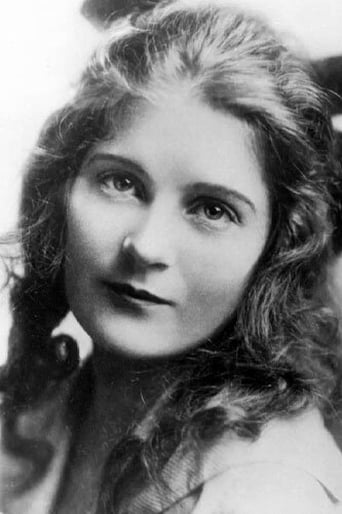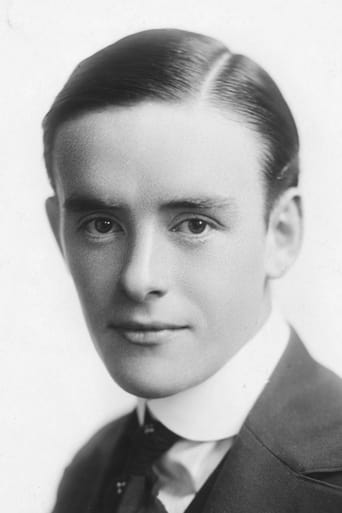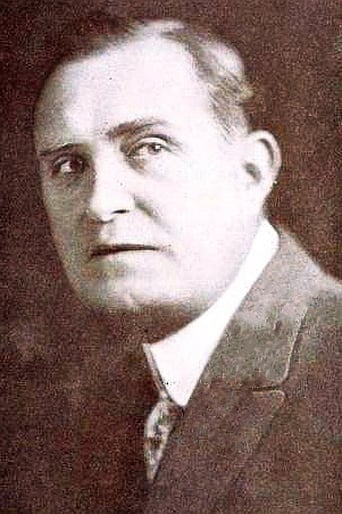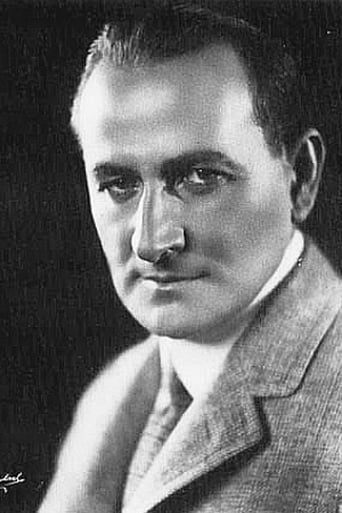MisterWhiplash
The most remarkable thing about Intolerance while I was watching it was that I found myself engaging with it as I would a modern piece of movie-making. Sometimes, even often times, when watching silence cinema I try to take it on the context of when it was made: that the director and crew and actors were working back when storytelling was completely new with moving images, that the scenarios were a little rougher, and that the social mores and other things made it specific to that time and place. Or, to put it another way, at times it might be dated as far as the storytelling - in the worst case scenarios, in a word, creaky.Intolerance begins in the first half hour sort of un-loading its four different scenarios - stories set in the modern day (of 1916) around the world of a company Jenkins and a feminist group; the Babylonians and Persians and their battles and quests for glory; the 16th century with turmoil in France; and the story of Jesus in Nazareth - but once the stories get going, Griffith's editing and storytelling work more like how one might see in a movie today. To say he was sophisticated in advancing the art of filmmaking is an understatement.This does not necessarily mean that there aren't things about it that haven't dated; there are some beats that come off as sexist (one of the inter-titles actually says, "when women are no longer able to attract men they turn to reform as a second option," in the modern times story) and there are some points where Griffith ratchets up the melodrama so high that it becomes sort of hysterical. But that's something I just take as a given with his approach, and to be fair this isn't quite as hyper-WTF as Birth of a Nation... then again, what is? And what Griffith is after here is nothing short of creating storytelling as a kind of visual symphony, particularly in the last like 45 to 50 minutes as all of the stories reach their manic and highly dramatic climaxes all at one - all while that woman sitting by the crib (is that Lillian Gish, how about that) is there sort of like the unofficial God(dess) of these slices of the human condition.There's a lot that can be dissected here, but I think what's telling, and what may actually be a slight (but only a slight) detriment to the filmmaking, is how much Griffith clearly prefers to tell more of two of the four stories: the modern day story and the Babylon epic. He gets to stage what I imagine were, with not much to compare to at the time (maybe aside from, uh, himself with BOTN and maybe Cabiria), the most spectacular battles recorded on film, and to bring together this story of "The Dear One" (Mae Marsh, gosh she's delightful and so ready to go full throttle with her acting) in a way that shows a sort of culmination of the melodramas he'd been making for years at Biograph. I didn't keep count of the minutes, but I'm pretty sure that these two tales - and by the way, the Babylon story also features a force of f***ing nature with Constance Talmadge as 'The Mountain Girl' - outnumber the French/Hugenot and Christ segments by quite a lot, and for the latter it almost seemed as if that was more allegorical to what was going on anyway in the other stories, especially the Boy's plight.I wouldn't say those should've been cut down or taken out, despite the Babylon and modern time stories being stronger overall; it's more a question of pacing. A recent descendant of Intolerance's approach to multi-level storytelling is Cloud Atlas (and I'm sure Nolan is a fan of this as well, not a doubt in my mind), and while that film certain is more scattered and messy in the success of its segments, the pacing was actually an improvement at times as far as balancing all of the stories. But, again, this almost in an ironic way a compliment to Griffith, that I think of this epic in such a way that it's closer to what movies in the 21st century achieve as far as bringing a novelistic approach 100 years on. So while I might have wanted more of those stories in France and Nazareth, what I got was still very good.I think the quality of Griffith's direction is what makes this so strong, along with some of the key performances and how he simply mounted such massive sets that, in their way, are more impressive than what you get today in CGI; your mind knows that all those figures are fake in modern films, no matter how much detail is put in here. In Intolerance, when I look at the people all in that Babylonian decadence, and then when the battle breaks out against the mighty Cyrus, it *feels* intense and sprawling.Unlike Birth of a Nation, which has such an unpleasant and virulent 2nd half that makes me never want to see it again on principle alone, I could find myself coming back to Intolerance, perhaps getting into it a little quicker than I found on a first time (that first half hour takes a little time as I mentioned), and just to marvel at some of the acting which is both big AND small in equal measure. By this I should say that you can't help but see when actors really are milking the emotion for all its worth - Brown Eyes in the French scenes, or that female killer in the modern day story, where Griffith really gets to use his close-ups in such a way that must have changed movies forever - but there's subtlety when called for also. The more I think about it hours after watching it, the more it feels like a monumental (if imperfect) achievement. 9.5/10
Eric Stevenson
"Intolerance" may in fact be the first truly great movie ever created. Some would say that honor goes to "Birth Of A Nation". Unfortunately, it's now regarded as old shame as it's quite racist. As I have now seen both films, I will admit that this one is better. Seeing as how it was made so quickly after BOAN, I thought it would be against racism. It's true that intolerance is obviously the main theme, but it isn't racism that this touches upon. It's a variety of things, but mostly religious tolerance. Nowadays, everyone just hates every kind of religion so it's quite unique.The weirdest part was figuring out where the "modern" part took place. It looked like it could easily pass for the 1950's. I realized it obviously couldn't be at that time because it hadn't happened yet. I guess it works really well as a period piece. It's hard to say that was unintentional, seeing as how it shows years from so long ago. What I love is that these years are so far apart. I'm no mathematician, but he fact that they seem to be equally distant, at least in terms of technology, shows great variety. My favorite is the Babylon part.Of course, most people say that. It's obviously the parts that have the best battle scene with really does hold up. I felt like I was watching an old timey version of "The Lord Of The Rings: The Return Of The King". This is about as epic as it comes back in those days. I also love the way the stories are told. They're mostly separated by a literal story book. The actors are even credited differently based on the segments they're in. I guess it's hard to find the fullest version, but three hours is long enough for me. At the end, they simply show all the different parts together. It does all add up well. This is one of the best silent films, well, one of the best films ever made and everyone should see it and yes, it has a great message of prejudice that holds true now and forever. Perfect ****.
Applause Meter
D.W. Griffith has bestowed on 21st century viewers a visually engaging historical artifact. The film is largely incoherent and ultimately lacks cohesion in its attempt to incorporate so many historical parallels. The four-hour extravaganza is a spectacle of excess in its every aspect. Of course it is critical to recognize that this film dates to 1916, predating the "modern era." Like most of the films from the early silent period, it's permeated with Victorian sensibility, and a puritan morality. Almost 100 years on, this makes for story lines reflecting a collective societal naiveté. Watching such a lengthy, moralizing melodrama is a tedious, wearying experience. I give it a "5" as an important example in the trajectory of the development of the movie industry both as popular entertainment and art form.







